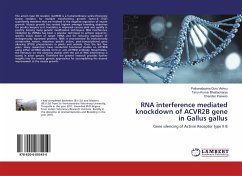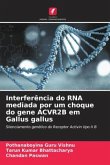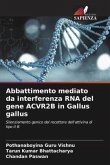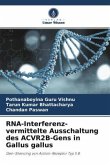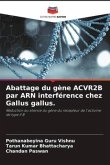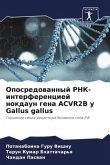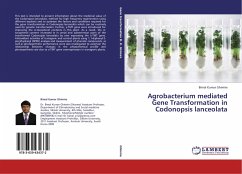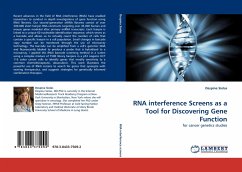The activin type IIB receptor (ActRIIB) is a transmembrane serine-threonine kinase receptor for multiple transforming growth factor-beta (TGF) superfamily members that are involved in the negative regulation of muscle growth. Muscle growth has ranked highest amongst breeding objectives for poultry keepers as it translates in improved carcass yield and quality in poultry. Among many genetic modification techniques, RNA interference mediated by shRNAs has been a popular technique to achieve sequence-specific knock down of target mRNA and for reducing expression of endogenously expressed proteins. RNAi is characterized by evolutionarily conservative nature, sequence specific action, post-transcriptional gene silencing (PTGS) phenomenon in plants and animals. Over the last few years, many researchers have conducted functional studies on ACTRIIB using either ACTRIIB soluble form or anti ACTRIIB antibody. Nevertheless, the literature on the silencing studies with the aid of RNA interference is scanty in avian species. Therefore the present research provides further insights into the reverse genetic approaches for accomplishing the desired improvement in the muscle growth.
